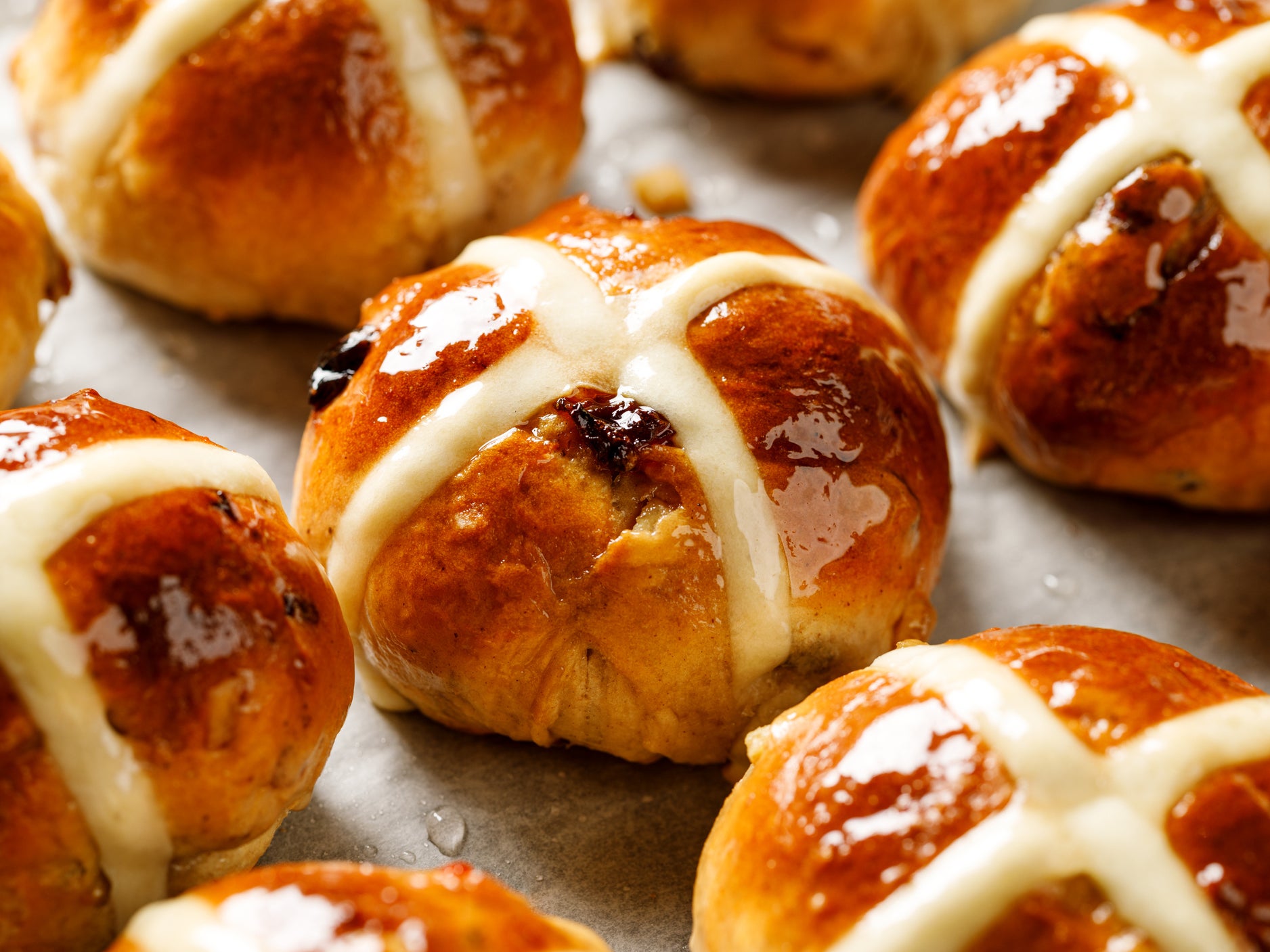Easter: Dog owners warned not to let pets eat hot cross buns due to ‘toxic effects of raisins’
‘Sharing just a little bit with your dog isn’t worth the risk of losing your best friend,’ says animal charity

Your support helps us to tell the story
From reproductive rights to climate change to Big Tech, The Independent is on the ground when the story is developing. Whether it's investigating the financials of Elon Musk's pro-Trump PAC or producing our latest documentary, 'The A Word', which shines a light on the American women fighting for reproductive rights, we know how important it is to parse out the facts from the messaging.
At such a critical moment in US history, we need reporters on the ground. Your donation allows us to keep sending journalists to speak to both sides of the story.
The Independent is trusted by Americans across the entire political spectrum. And unlike many other quality news outlets, we choose not to lock Americans out of our reporting and analysis with paywalls. We believe quality journalism should be available to everyone, paid for by those who can afford it.
Your support makes all the difference.Dog owners have been warned against allowing their pets to eat hot cross buns during Easter as raisins can pose a serious threat to their health.
Hot cross buns are a traditional staple during Easter, decorated with a cross on top and eaten on Good Friday in countries around the world.
The spiced sweet buns typically contain fruit, one of the main ingredients usually being currants or raisins.
Over Easter weekend, people may feel inclined to allow their dogs to enjoy some of the celebratory treats gracing the kitchen table.
However, if pet owners allow their canine companions to consume raisin-filled hot cross buns, they could be putting their dogs’ lives at risk.
“Grapes, raisins, currants and sultanas are all toxic to dogs and it is believed the dried forms of these fruits are more toxic than grapes,” the Kennel Club states.
“At this time of year, it is therefore important that hot cross buns are kept well away from your dogs.”
The Veterinary Poisons Information Service provides further detail on how these food items affect dogs when consumed.
“These cause kidney failure in dogs, and potentially other animals too,” the organisation affirms.
“The toxic mechanism is not understood and the quantity that can cause problems seems to be very variable.”
The Veterinary Poisons Information Service explains that while some dogs may show no symptoms of anything being wrong after eating foods such as raisins or currants, others may experience kidney failure “after ingesting a small number of raisins or grapes”.
Dr Laura Playforth, professional standards director for out-of-hours pet care firm Vets Now explains that it is “unclear exactly what causes the toxic effects of raisins”.
However, “just one can kill a susceptible dog,” she says, which is why “real caution should be taken with foods, like hot cross buns, that contain them”.
Dr Playforth adds that in the event of a dog eating grapes or raisins, “the prognosis for grape and raisin toxicity is generally good if treated early”.
Animal charity Blue Cross has also emphasised the importance of being wary of what foods are in reach of your dogs at Easter.
In addition to hot cross buns, the charity warns against allowing dogs to eat chocolate Easter eggs in addition to spring bulbs, which can also be harmful to their health.
On the subject of the raisins, grapes and sultanas in hot cross buns, Blue Cross explains that while “some pets have ingested large quantities and felt no effects”, other breeds, including large breeds, “have died after eating just a few raisins”.
“Sharing just a little bit with your dog isn’t worth the risk of losing your best friend — avoid heartache by keeping them away from hot cross buns altogether,” the charity says.
Join our commenting forum
Join thought-provoking conversations, follow other Independent readers and see their replies
Comments